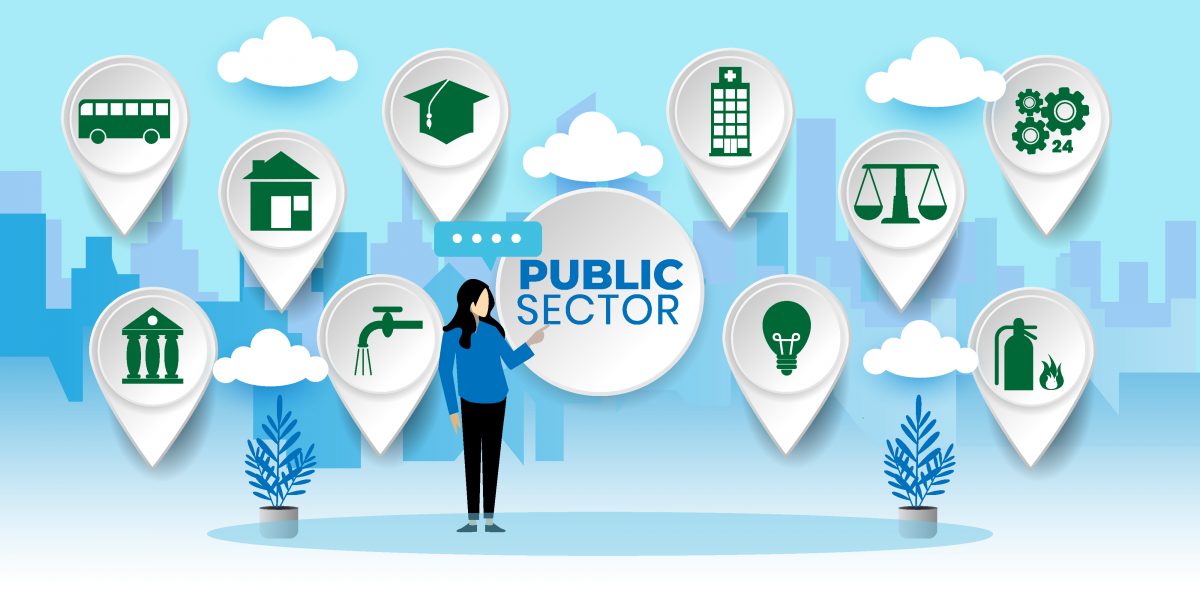Blockchain has now established itself as a disrupting technology that can transform Information Communication Technology (ICT) services. The technology enables transactions to be approved and validated with the consent of the majority. More importantly, there is no need for a third party to validate transactions. Hence, the role of the third party is expunged.
The transactions that take place get saved in the form of blocks. These blocks are then joined one by one in link list form. Interestingly, all the blocks of Blockchain have transaction details [1]. They also have the hash of the previous block. It helps in retaining ownership and data integrity in the form of a block.
Countries fast recognising benefits of Blockchain
Blockchain is increasingly being used across industry sectors. Its benefits are also being recognised by governments all over the world. Modern societies demand easy, handy and effective communication between the government and the citizen. E-governance solutions are facilitating this and thereby generating efficiencies in government.[2] E-governance makes essential changes to the distributed governance system. It also impacts document management and processing.
The faster development of information and communication technologies (ICTs) has contributed to much progress. However, citizens' participation in e-governance is still low. The reason behind this is the limited penetration of interactive tools and online services on government websites. It is where Blockchain-enabled tech solutions, based on radically new principles of compatibility, offers great hope.
In the case of e-governance, Blockchain can store data of all interactions between citizens and government agencies. What is crucial to understand is that the data are interlinked, coded and stored by all in the system.[3] Moreover, they are automatically updated to reveal the changes made. Blockchain-based solutions, such as automated auctions, smart contracts, and decentralised autonomous organisations can turn out as decisive steps towards decentralisation.
Here are some areas of e-governance where Blockchain Technology can do wonders -
- Blockchain Technology in the registration system can improve the safeguards offered by conventional registries.
- The transaction costs can be significantly reduced. This can be done by removing payment of state duties and intermediary fees.
- Transactions can become less time-taking, more transparent and safe.
Blockchain in addressing corruption
Blockchain can be instrumental in preventing government corruption. An interesting fact about Blockchain is that users act as a collective notary certifying the accuracy of the data. It helps to safeguard against abuses and scheming attempts. Blockchain technology acts as an effective tool in controlling corruption.[4] It also creates an environment of collective responsibility. It does so, by making it mandatory for all to follow the rules.
Features like tamper-evident record-keeping, real-time transaction transparency, and auditable and automated smart contract functionality can effectively control corruption.
Here are some of the areas of governance where Blockchain-enabled solutions can play a vital role in controlling corruption -
1. Public Procurement
Public procurement or government contracting for goods, services, or work is the most significant source of official corruption worldwide. Several factors contribute to it.
A Blockchain-based process can directly address this. It can facilitate third-party oversight of tamper-evident transactions. [5] It can also promote better objectivity and uniformity through automated smart contracts. It increases transparency and accountability.
2. Land Title Registries
Across the world, governments are experimenting with Blockchain-based land title registries. Such registries ensure a secure, decentralised, publicly verifiable, and immutable record system. It helps individuals prove their land rights decisively and with authority.
3. Electronic voting
Blockchain-based voting platforms are fast becoming a governmental strategy to increase trust and participation in the democratic processes. The decentralised, transparent, immutable, and encrypted qualities of Blockchain Technology minimise election corruption and maximise poll participation.
4. Beneficial corporate ownership registries
Obscure or undisclosed beneficial corporate ownership is another seat of corruption. Clandestinely operated entities often launder money, pay bribes, or bend governmental funding. A central registry for beneficial corporate ownership helps trail conflicts of interest and criminal activity. Blockchain-based registries are tamper-evident and broadly accessible. They ensure transparency and disclosure.
5. Grant disbursements
Governments worldwide disburse millions of dollars in education, arts, humanitarian aid, social assistance, etc. The process is often complex, unclear, and inept. It results in colossal fund loss and shady fund diversions. Blockchain is capable of building public trust in such systems. The technology can dis-intermediate and trim down the number of actors involved in the process. It can also simplify the process, decrease costs, and curtail opportunities for illicit financial draw offs.
Blockchain Technology to transform e-governance services to a next level
Blockchain can revolutionise agriculture services, the banking sector, land record management and other such domains. It is possible by creating a foundation for decentralised governance, endorsing consensus-based social contracts and upholding the interest of the society.[6] More and more nations are embracing Blockchain Technology for a host of e-governance purposes. These include-
- Registration of movable and immovable assets. e.g. intellectual property, wills, social protection, health care data, and pension systems.
- Conducting auctions
- Encouraging transparency of budgets
- Ensuring trustworthy vote-counting in elections
- Creating crowdfunding platforms to enable investors to trace expenditures
Challenges
Any new tech innovation comes with its benefits and challenges. Blockchain Technology is no exception. It has many implementation limitations, as well as security, economic, regulatory and political challenges. The technology is not one to be implemented without appropriate safety measures. [7] It is important to note that security remains one of the significant issues in the consensus phase of Blockchain Technology. However, with suitable means for warranting the privacy of the transaction data over the consensus phase, we can manage it well.
Conclusion
Blockchain technology has enormous potential to transform the existing e-governance services into a new era. [8] It can enhance e-governance with data structure, smart contracts, open-source platforms, consensus mechanisms, network transactions etc. Once done, it will ensure the efficiency of services, customer satisfaction, cost-saving, security, privacy, and trust.
A caveat! Blockchain technology needs to be paired with proper legal frameworks. The technology cannot prevent crimes on its own. Governments will need to attain a detailed understanding of the Blockchain design principles. They will need to know the possible applications in the domain of e-governance. Also crucial is to explore the governance mechanisms to cope with the limitations and challenges of the technology.
It is time for countries to accept Blockchain Technology as an exclusive and universal tech tool. If properly implemented, this tool can modernise and computerise almost all administrative procedures and enhance the transparency and efficiency of e-governance.
Reference:
- [1] Dzmitry Markusheuski, Natallia Rabava, Vitali Kukharchyk, "Blockchain technology for e-governance" Policy Brief
- [2][3] Svein Ølnes, Jolien Ubacht, Ramzi El-Haddadeh, Arild Jansen, Lemuria Carter (Eds.) "Blockchain-based Applications for Information Sharing and Management in e-Government" (Accessed September 2021)
- [4][5] Om Pal, Surendra Singh, “Blockchain Technology and It’s Applications in E-Governance Services” International Journal of Recent Technology and Engineering (IJRTE) ISSN: 2277-3878, Volume-8 Issue-4, November 2019
- [6][7] [6][7] e-Governance: The Digital Republic Secured by Blockchain, PWC Estonia
- [8] Rachel Davidson Raycraft, Ashley Lannquist, “Blockchain alone can’t prevent crime, but these 5 use cases can help tackle government corruption”, World Economic Forum.






Comments